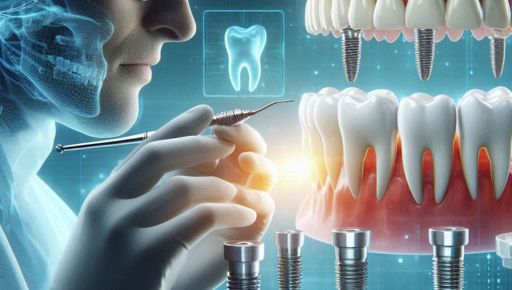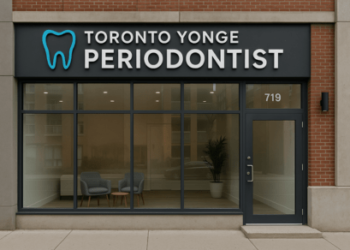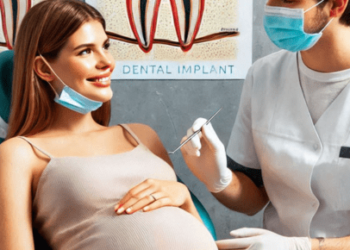
The capacity of dental implants to replace lost teeth while generating a stunning smile is often the first thing that comes to mind. Dental implants, however, support your general alignment and oral health in ways that go far beyond just improving appearance.
Over time, missing teeth can lead to a number of issues. The shifting or dislocation of your remaining teeth is one of the most important. Dental implants for Lansing dentists provide a permanent fix that keeps everything in place.
How dental implants help maintain proper tooth alignment
Losing a tooth can cause a chain reaction that impacts the adjacent teeth in addition to leaving an empty gap in your smile. Teeth are supported by one another. Neighboring teeth are able to move into the gap left by a lost tooth. We call this dental drift.
Missing teeth may result in alignment issues in several ways:
- Shifting nearby teeth
When a neighboring tooth is not there to support them, neighboring teeth have a tendency to shift in the direction of the empty area. Gaps or crowding may result from this movement.
- Tooth eruption
Without an opposing tooth to hold it in place, the tooth that faces the gap (either above or below it) may start to “super-erupt” or spread further away from the gum line.
- Bite misalignment
Your bite might shift over time as a result of shifting teeth. This may make chewing uncomfortable or even difficult. Uneven tooth wear and jaw pain are additional impacts of a misaligned bite. These issues are less likely to occur the sooner a lost tooth is replaced.
Benefits of dental implants
- Perfect replacement for a natural tooth
Dental implants function equally to a natural tooth replacement. By filling the gap and replacing the missing tooth’s function, they stop the surrounding teeth from moving. The implant supports the adjacent teeth by mimicking the root framework of a natural tooth. This keeps adjacent teeth from moving into the gap and stabilizes your bite.
- Maintain the alignment of teeth.
Because there is no longer contact between the two teeth while your mouth is closed, a missing tooth may cause the opposing tooth in the jaw to drift or elongate (super-eruption). This essential point of contact is restored with dental implants. They maintain the alignment of the upper and lower teeth and stop the opposite tooth from shifting.
- Maintain the bone density.
Furthermore, implants help in maintaining bone density and activating the lower jaw. More displacement and misalignment can occur from the stability of nearby teeth being harmed by bone deterioration. A dental implant’s titanium post stimulates and maintains the structure of the bone, much like a tooth root would.
- Maintains proper posture
Finally, implants maintain the correct position of your bite. Effective chewing requires a bite that has enough space to distribute pressure similarly across all of your teeth. Your bite may become unbalanced as a result of teeth shifting due to missing teeth, which may cause uneven wear or jaw strain. Dental implants help maintain everything’s proper alignment.
Exploring the dental benefits
It is an excellent time to think about your dental benefits as the year draws to a conclusion. Any unused benefits will not be passed over to the next year under the yearly limits of many insurance plans. If you have been contemplating getting dental implants, using the benefits you have before the year is out can help you pay for the procedure.
To learn more about how to apply for coverage, speak with your dental insurance company. Some policies may partially cover dental implants, while others may provide payment plans or financing options. By making use of these benefits, one can support overall oral health in addition to restoring lost teeth.










